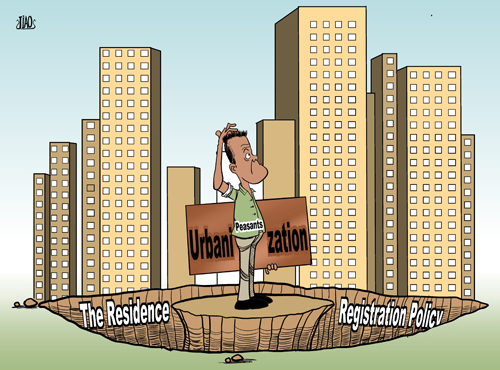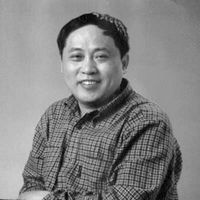Stop property speculators looting the public purse
 |
|
[By Jiao Haiyang/China.org.cn] |
According to the latest Forbes list, the number of billionaires in China is growing faster than anywhere else in the world. The rival Hurun Rich List claims there are a million multimillionaires in China and almost 60,000 billionaires. In fact, these figures are probably understated because property owned by Chinese officials is a well-kept secret. But anti-corruption campaigns regularly turn up amounts of 10 million yuan or more in bribes or embezzlements. What is most striking is that most of this money is being made in the real estate market. Sixty percent of domestic wealth originates in the housing market, according to Hurun.
When I first visited Hong Kong in 1997 I seldom heard of mainland residents buying homes there. But in the latest a couple of years a torrent of mainland capital has flowed into the Hong Kong market. Rising house prices of Hong Kong are the result of crazy speculation by mainland buyers. Globally, house prices soar wherever Chinese capital flows to. House prices in Vancouver and Sydney are good examples.
|
|
| Yi Xianrong |
China is still a developing country and most ordinary people live modestly, farmers in particular. But the country has also become one of the world's top consumers of luxury goods. China's new rich flaunt their wealth shamelessly both at home and abroad.
How did the rich make their money in such a short time? In fact, most huge fortunes have been made out of the process of urbanization. Urbanization increases efficiency, changes lifestyles, and boosts consumption, wealth creation and accumulation. The hike in land prices simply reflects this creation of wealth. But we need to ask who is making the really big money.
In fact, loopholes in the system mean urbanization in China has become an excuse for a few people to plunder wealth from the majority. But there is another, better way. Effective taxation meant that urbanization in Japan and South Korea took place in the last century without seriously disrupting social harmony.
 0
0 







